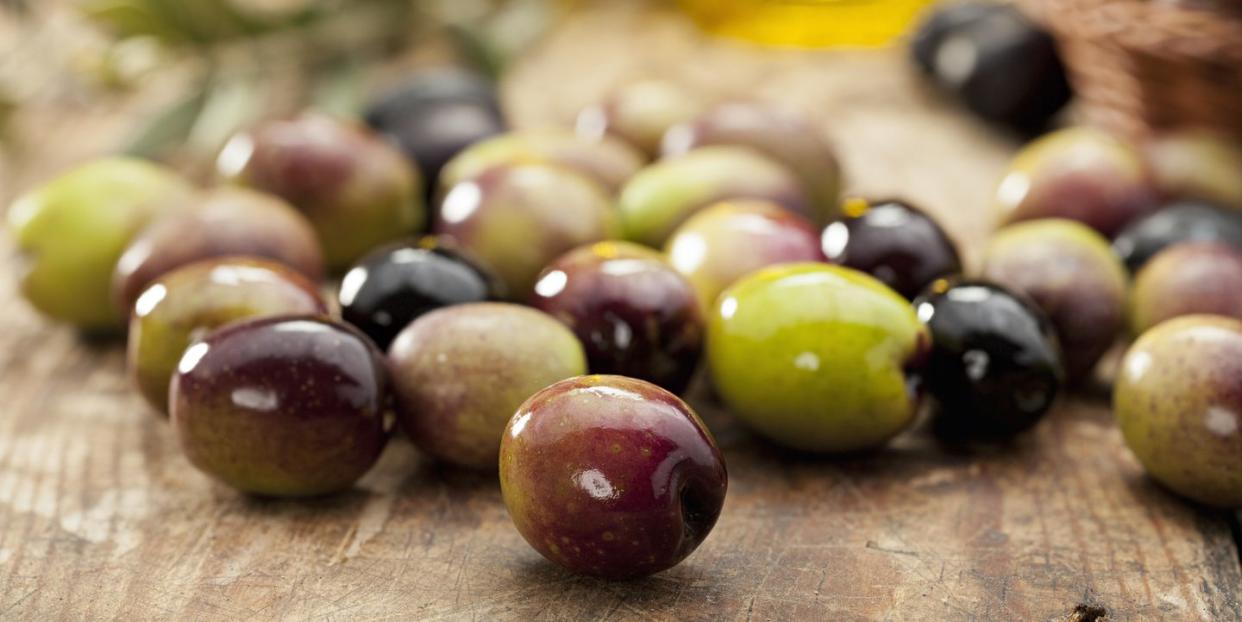The True Difference Between Black and Green Olives

Whether you primarily eat them with martinis or sprinkle them on your pizza, olives make just about everything taste better. But while you might consider that tapenade a savory treat, the flavorful Mediterranean delicacies have another hidden side: They're technically fruits. Just (carefully) pop any unpitted olive into your mouth for proof.
The stones inside act as the seeds for the Olea europaea tree. In any botanist's book that means they're technically classified as fruits - specifically a kind called drupes, a.k.a. stone fruits. This category also includes sweeter produce like mango, dates, apricots, cherries, nectarines, peaches, and plums, but botany doesn't rely on taste to make distinctions.
It all comes down to the reproductive body of the plant, or in this case, tree. According to Encyclopedia Britannica, a fruit is "the fleshy or dry ripened ovary of a flowering plant, enclosing the seed or seed." Plant an olive pit in the ground and what'll you get? A slow-growing but surprisingly hardy tree.
For the record, any other edible part of the plant - like the roots (carrots) or leaves (lettuce) - count as true vegetables, but other seed-filled "veggies" like cucumbers, tomatoes, pumpkins, avocados, and even pimento peppers also belong to the fruit family.
If you olove these fun facts, get this: Both green and black olives grow on the same tree. The depth of color reflects the maturity of the fruit at the time of harvest, with green and yellow occurring at the beginning of the ripening cycle and purple and black happening at the end.
You wouldn't want to eat an olive fresh from the grove though. Without curing and fermenting, a bitter phenolic compound called oleuropein makes the tiny fruits unpalatable. No matter what you call them, it's a good idea to keep snacking on Kalamatas and drizzling that olive oil.
"Olives are chock-full of monounsaturated fatty acids, a type of fat linked with lowering LDL ("bad" cholesterol) while maintaining HDL ("good" cholesterol")," says Jaclyn London, MS, RD, CDN, Nutrition Director at the Good Housekeeping Institute. "Plus, long-term evidence suggests that people who consume extra-virgin olive oil daily are at a lower risk of heart attack, high blood pressure, and cardiovascular mortality than those who don't."
Cheers (with martinis!) to that.
('You Might Also Like',)

